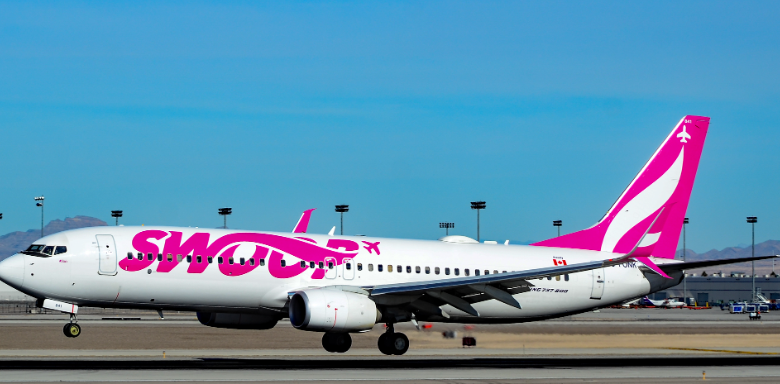
WestJet To Shut Down Budget Airline Swoop
WestJet has announced that it will be winding down its subsidiary, Swoop, and integrating its operations into the main WestJet brand by late October.
This decision comes five years after the launch of Swoop,which was a response to rival discount airline Flair Airlines in 2017.
The move comes after the ratification of a new collective agreement between WestJet and Swoop pilots, which brings them onto a level pay scale and includes a 24% pay increase over four years. WestJet CEO Alexis von Hoensbroech stated that while considering the option of keeping Swoop separate, the higher wages for flight crews made it less feasible. He explained that integrating Swoop into the mainline business was the logical choice, as it allows for a broader ultra-low-cost reach and an increased footprint for such offerings in Canada.
Swoop’s 16 narrow-body 737s will continue operating on their current network until October 28, after which they will cease flying and be repainted with the blue and turquoise livery of WestJet. The company assured that no layoffs would occur as a result of the integration, and all Swoop employees would transition to the mainline operations.
Competition for budget airfares has intensified in recent years, particularly in Western Canada, with Flair Airlines and Lynx Air challenging Swoop for market share on key routes. Von Hoensbroech acknowledged the competitive market but emphasized that integrating Swoop strengthens WestJet’s position in discount offerings rather than indicating a retreat.
The CEO, who assumed leadership in February 2022, acknowledged that WestJet hadn’t turned a quarterly profit since 2019, and the threat of a strike further impacted bookings negatively. Negotiations with pilots were concluded just in time, with WestJet canceling over 230 flights in anticipation of job action before reaching an agreement-in-principle hours before the strike deadline on May 19. The ratified agreement, effective from Canada Day and retroactive to January 1, includes higher compensation, improved job security, and more flexible schedules. Bernard Lewall, head of the Air Line Pilots Association’s WestJet contingent, which represents approximately 1,800 pilots, expressed confidence that the agreement would address labor issues and bring greater stability to the airline’s operations.
Since its establishment as a regional airline in 1996, WestJet has expanded its services to capture 28% of Canada’s domestic air travel market as of last month, compared to Air Canada’s 47%, according to aviation data firm Cirium. After going public in 1999, the airline became privately held again in 2019 when it was acquired by Toronto-based investment manager Onex Corp in a $5-billion deal that closed in December 2019, just three months before the onset of the COVID-19 pandemic.








































